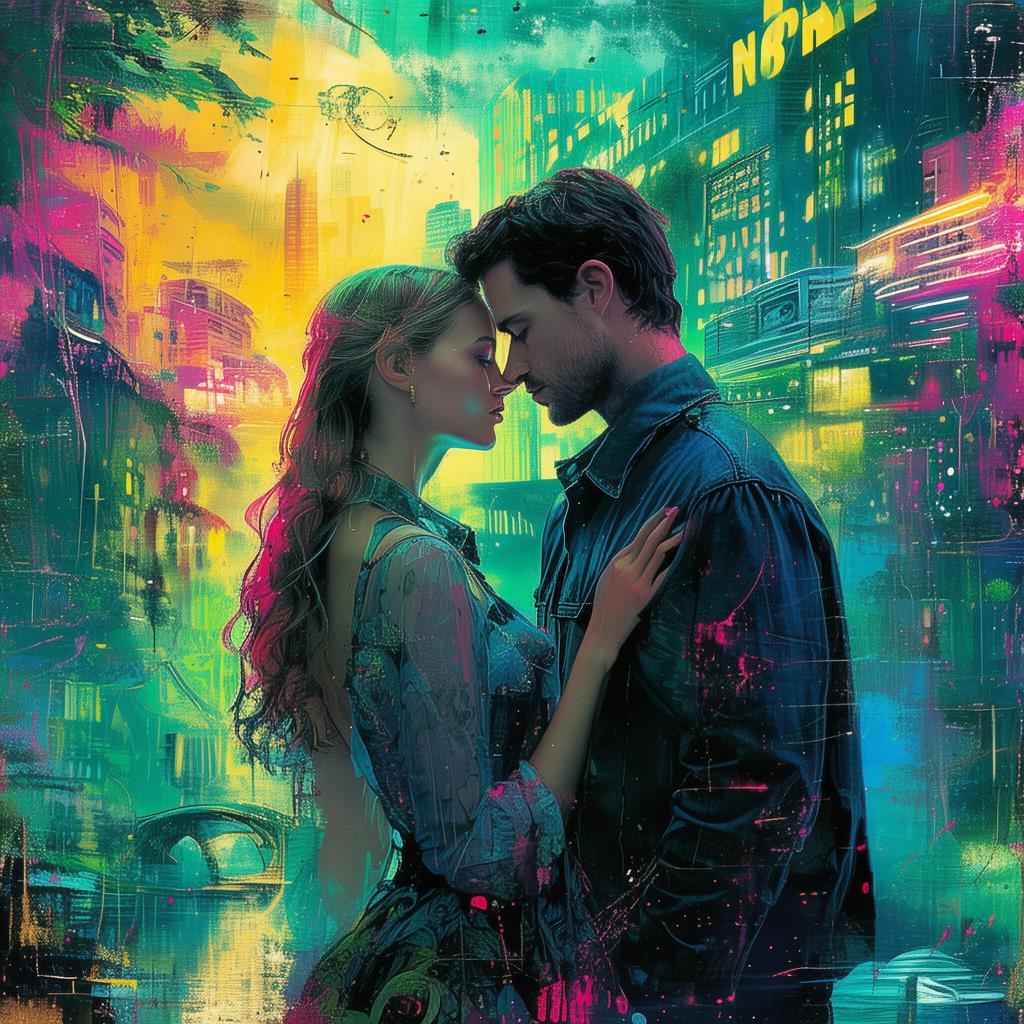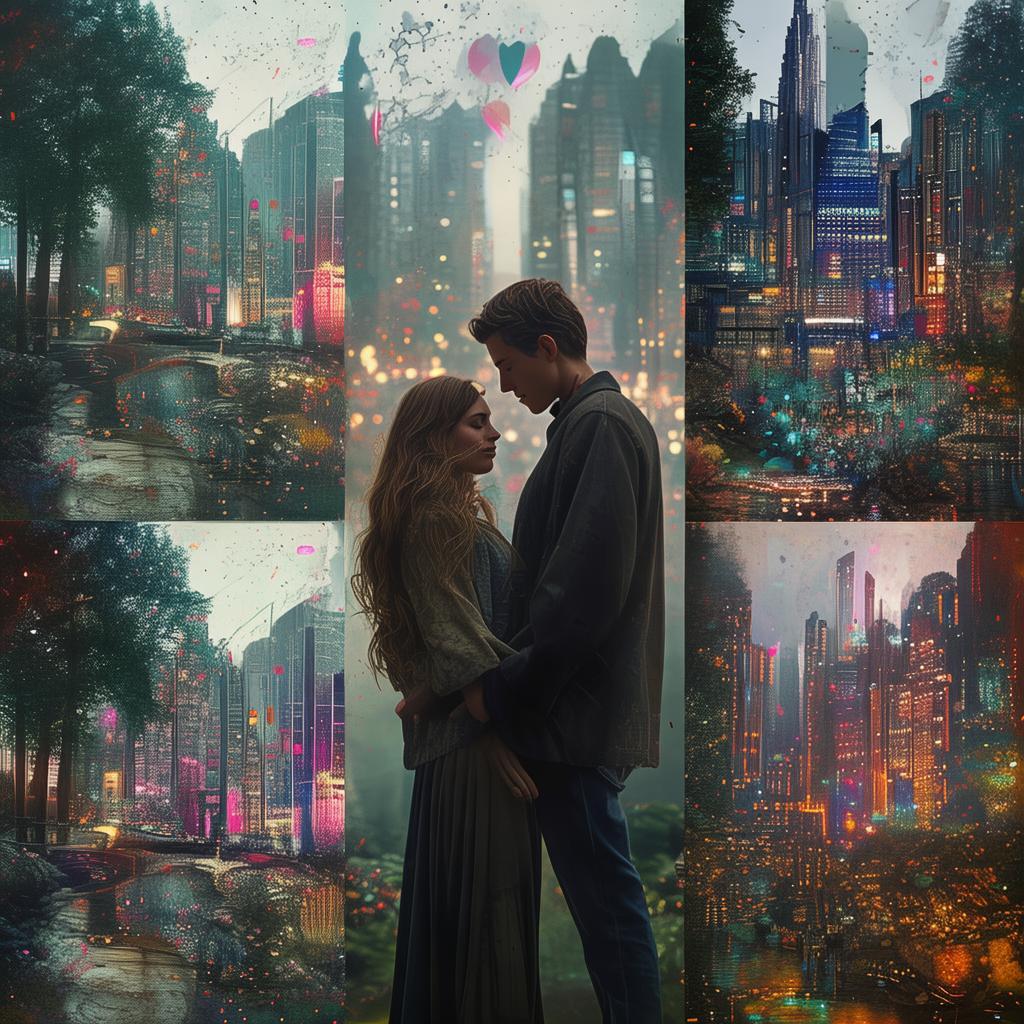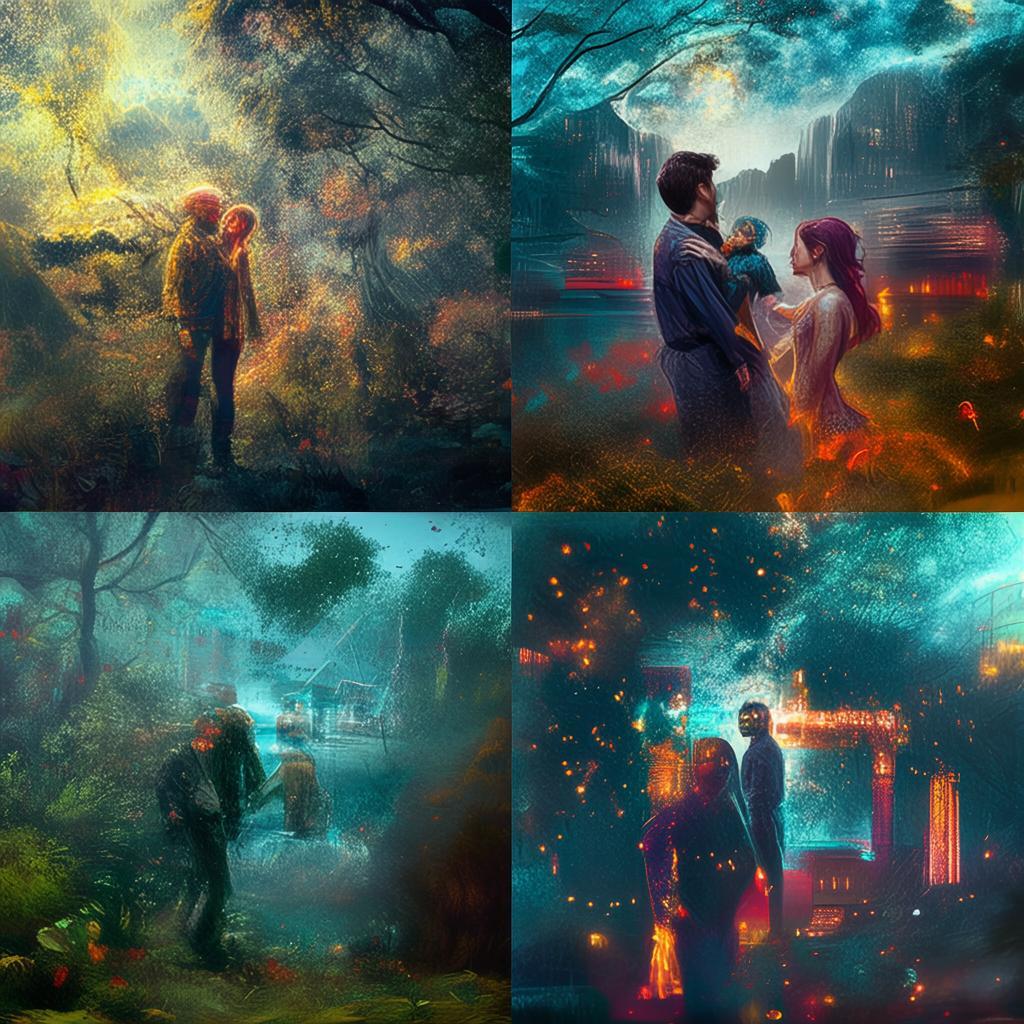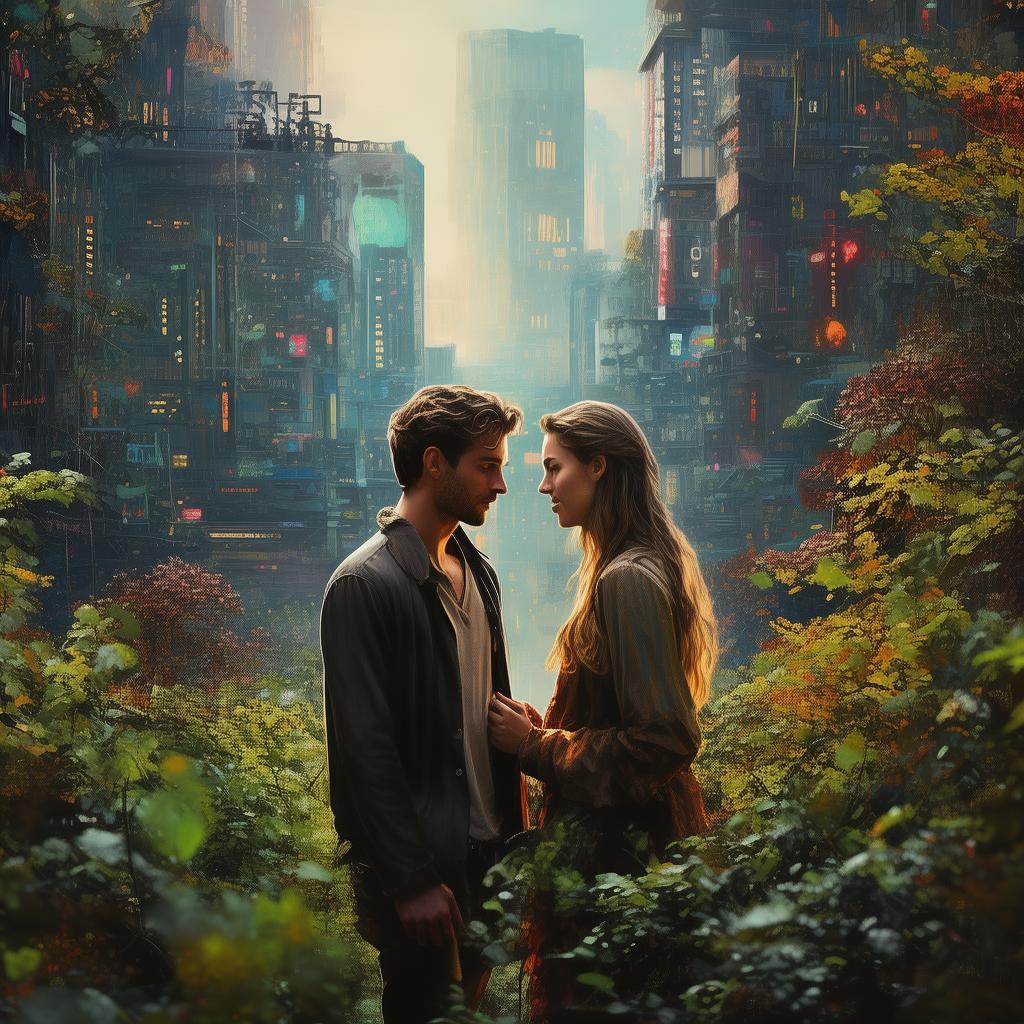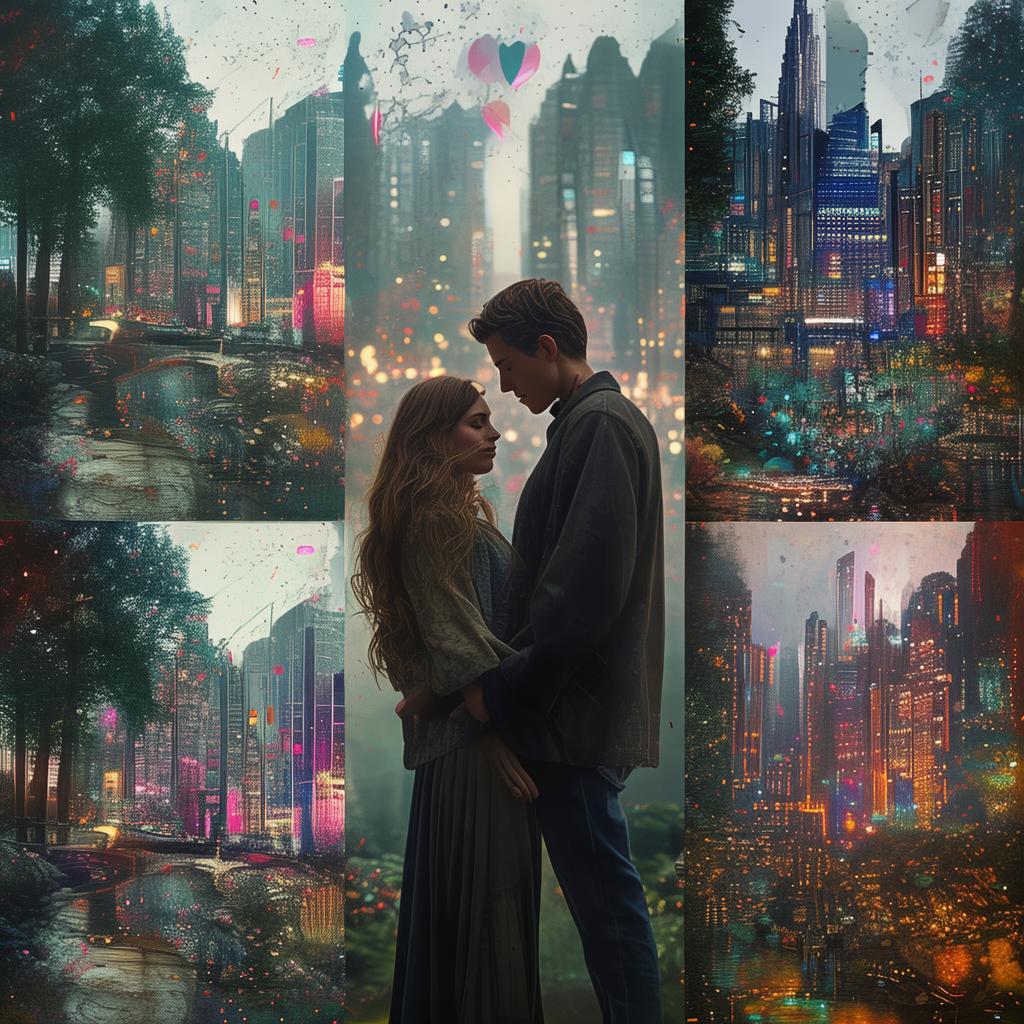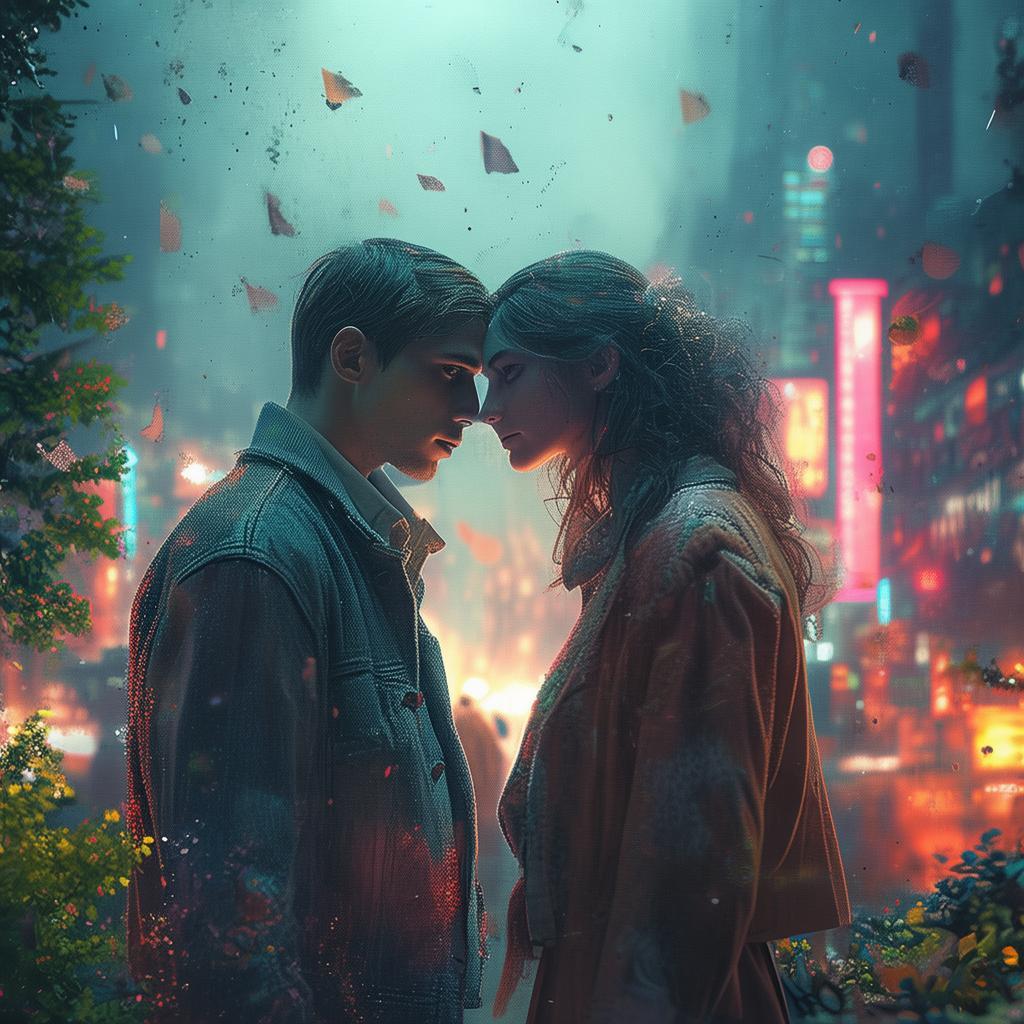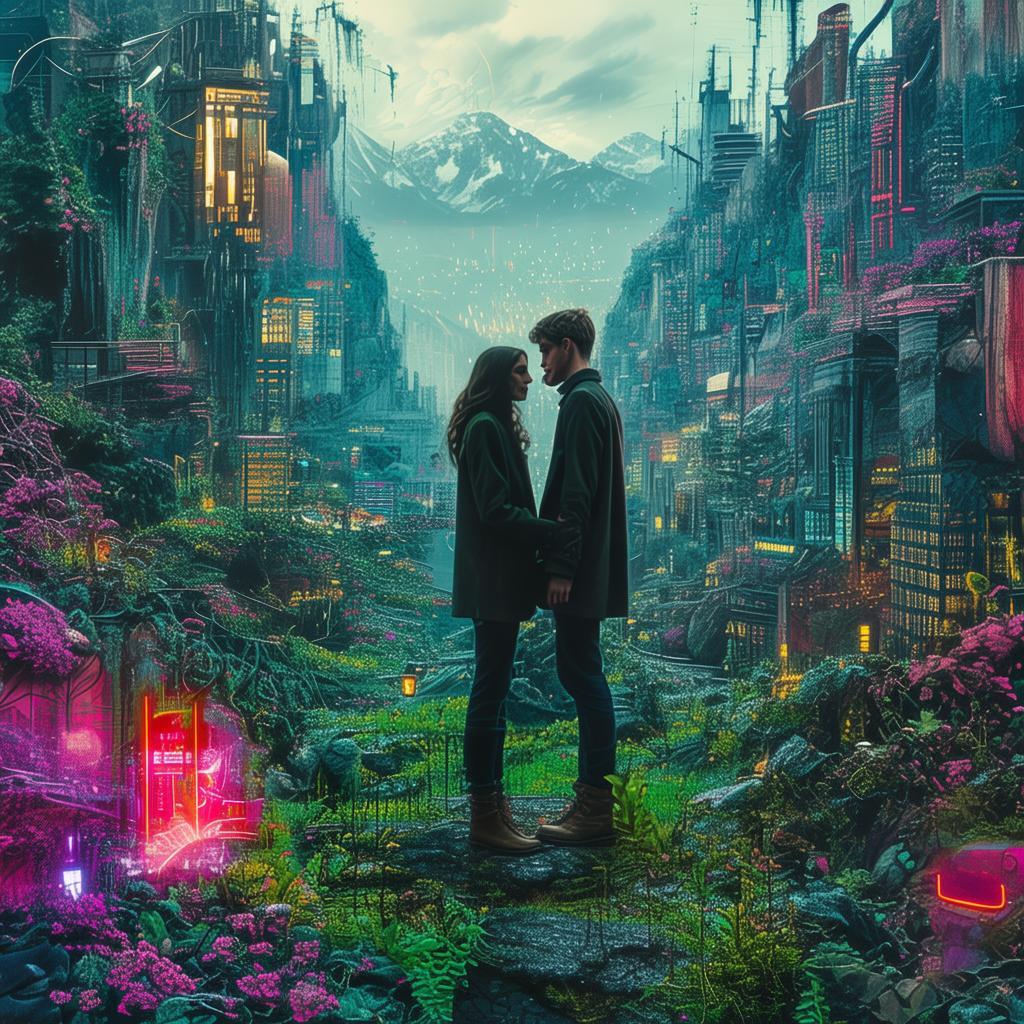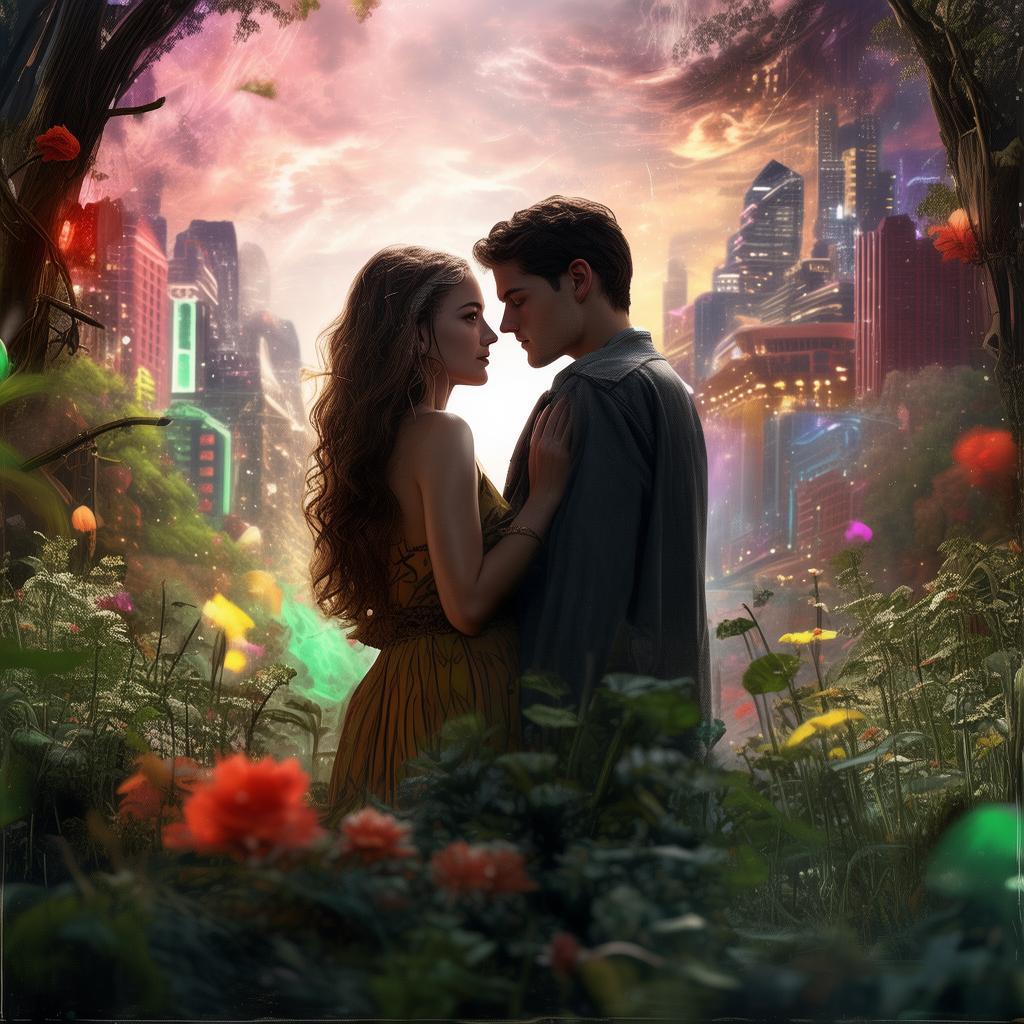The Last Train to Tokyo
The neon lights of Tokyo flickered against the night sky, casting an ethereal glow over the sprawling metropolis. The city was alive with the sounds of its inhabitants, yet each person seemed to be in their own private world, a silent dance of solitude. Amidst the sea of faces, two souls wandered the streets, their hearts heavy with the weight of the city's melancholy.
Yumi was a painter, her brush strokes capturing the essence of Tokyo's beauty and sorrow. She found solace in her art, but the canvas never seemed to do justice to the raw emotions that coursed through her veins. Her love for Tokyo was as complex as the city itself, a love that was both a sanctuary and a prison.
Kaito was a musician, his melodies weaving a tapestry of dreams and despair. His music was a reflection of the city's heartbeat, a symphony of life and loss. He wandered the streets with his guitar, his fingers dancing across the strings, hoping to find a melody that could express the love he felt for Yumi.
Their paths crossed one rainy evening. Yumi, seeking shelter from the downpour, ducked into a small, dimly lit café. There, she found Kaito, his eyes closed, lost in the music he played. Their eyes met, and in that moment, a connection was forged, a bond that transcended the loneliness of the city.
As the days passed, Yumi and Kaito found themselves drawn to each other, their conversations filled with laughter and the promise of something more. They explored the city together, their footsteps leaving a trail of memories in the concrete jungle. They shared stories of their pasts, their dreams, and their fears, each revelation bringing them closer together.
But Tokyo was a city of contrasts, and their love was no exception. While their bond grew stronger, the city's melancholy seemed to seep into their relationship, casting a shadow over their happiness. Yumi's paintings grew darker, her brush strokes more forceful, reflecting the turmoil within her soul. Kaito's music became more melancholic, his melodies a reflection of the city's sadness.
One evening, as they walked along the riverbank, Yumi confessed her fears. "I'm afraid that our love is just a reflection of the city's sadness, that it will fade away like the morning mist."
Kaito reached out, his fingers brushing against hers. "Love is not a reflection, Yumi. It is the light that pierces through the darkness, the warmth that melts the ice."

Their love was a testament to the resilience of the human spirit, a beacon of hope in the heart of a city that seemed to be perpetually shrouded in shadows. But as the days turned into weeks, the shadows began to grow longer, casting a foreboding sense of doom over their relationship.
One night, as they sat in a small, cozy café, Yumi received a call. Her father had been diagnosed with a terminal illness, and she had to return to her hometown to be with him. The news hit her like a physical blow, and she knew that her departure would test the strength of their love.
"I have to go," she said, her voice trembling. "I need to be with him."
Kaito reached out, wrapping his arms around her. "I'll come with you," he said. "We'll face this together."
But fate had other plans. As Yumi prepared to leave, Kaito received a call from his manager. An international music festival had offered him a chance to perform, and he had to accept the offer. The decision was difficult, but Kaito knew that he couldn't let this opportunity slip away.
"I can't go with you," he said, his voice filled with regret. "I have to take this chance."
Yumi's eyes filled with tears. "I understand, Kaito. But I can't bear the thought of us being apart."
The night before Yumi's departure, they met at the train station. The last train to her hometown was scheduled to leave at midnight, and they knew that they had to say goodbye.
As the train pulled into the station, Yumi stepped onto the platform, her heart heavy with the weight of their impending separation. Kaito watched her from the other side of the tracks, his eyes reflecting the pain of their parting.
"Yumi," he called out, his voice echoing through the night. "I love you more than anything."
Yumi turned, her eyes meeting his. "And I love you, Kaito. More than life itself."
With a final, tearful embrace, they parted ways. Yumi boarded the train, and Kaito watched as it pulled away, leaving him standing alone on the platform.
The journey was long and arduous, filled with memories of their time together. Yumi's father's health deteriorated rapidly, and she found herself struggling to cope with the grief and loneliness that consumed her.
In the midst of her despair, she found solace in her art. She painted the city, capturing its beauty and sadness, and in doing so, she found a way to express her love for Kaito. Her paintings became a testament to their love, a reminder of the strength and resilience that had brought them together.
Meanwhile, Kaito's music career took off, and he became a sensation in the international music scene. His songs were filled with the emotion and passion that had defined his relationship with Yumi, and they resonated with audiences around the world.
One day, as he performed on stage, he received a message from Yumi. She had completed her paintings, and she wanted to share them with him. He arranged to meet her at the gallery where her work was being displayed.
As he entered the gallery, he was greeted by the sight of Yumi's paintings, each one a reflection of their love and the pain of their separation. He walked through the exhibition, his eyes filling with tears as he saw the depth of her emotions captured on canvas.
At the end of the gallery, he found Yumi, her eyes meeting his. "I love you, Kaito," she said, her voice trembling. "And I never stopped loving you."
Kaito stepped forward, wrapping his arms around her. "And I love you, Yumi. More than life itself."
They stood there, in the heart of Tokyo, their love transcending the city's melancholy. They had faced the ultimate test, and their love had emerged stronger than ever before.
The Last Train to Tokyo was not just a story of love, but a testament to the resilience of the human spirit. It was a story of two souls who found each other in the heart of a city that seemed to be perpetually shrouded in shadows, and who, through their love, found the light that could pierce through the darkness.
✨ Original Statement ✨
All articles published on this website (including but not limited to text, images, videos, and other content) are original or authorized for reposting and are protected by relevant laws. Without the explicit written permission of this website, no individual or organization may copy, modify, repost, or use the content for commercial purposes.
If you need to quote or cooperate, please contact this site for authorization. We reserve the right to pursue legal responsibility for any unauthorized use.
Hereby declared.

